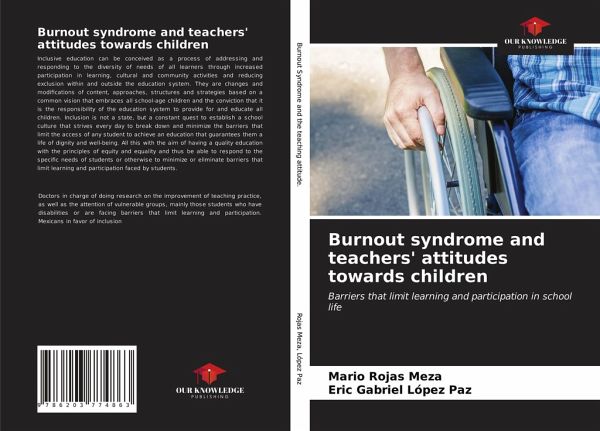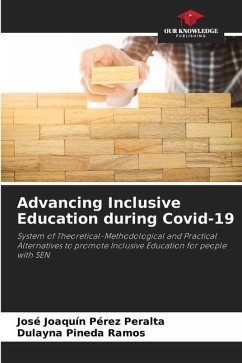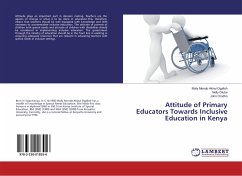
Burnout syndrome and teachers' attitudes towards children
Barriers that limit learning and participation in school life
Versandkostenfrei!
Versandfertig in 6-10 Tagen
47,99 €
inkl. MwSt.

PAYBACK Punkte
24 °P sammeln!
Inclusive education can be conceived as a process of addressing and responding to the diversity of needs of all learners through increased participation in learning, cultural and community activities and reducing exclusion within and outside the education system. They are changes and modifications of content, approaches, structures and strategies based on a common vision that embraces all school-age children and the conviction that it is the responsibility of the education system to provide for and educate all children. Inclusion is not a state, but a constant quest to establish a school cultu...
Inclusive education can be conceived as a process of addressing and responding to the diversity of needs of all learners through increased participation in learning, cultural and community activities and reducing exclusion within and outside the education system. They are changes and modifications of content, approaches, structures and strategies based on a common vision that embraces all school-age children and the conviction that it is the responsibility of the education system to provide for and educate all children. Inclusion is not a state, but a constant quest to establish a school culture that strives every day to break down and minimize the barriers that limit the access of any student to achieve an education that guarantees them a life of dignity and well-being. All this with the aim of having a quality education with the principles of equity and equality and thus be able to respond to the specific needs of students or otherwise to minimize or eliminate barriers that limit learning and participation faced by students.












